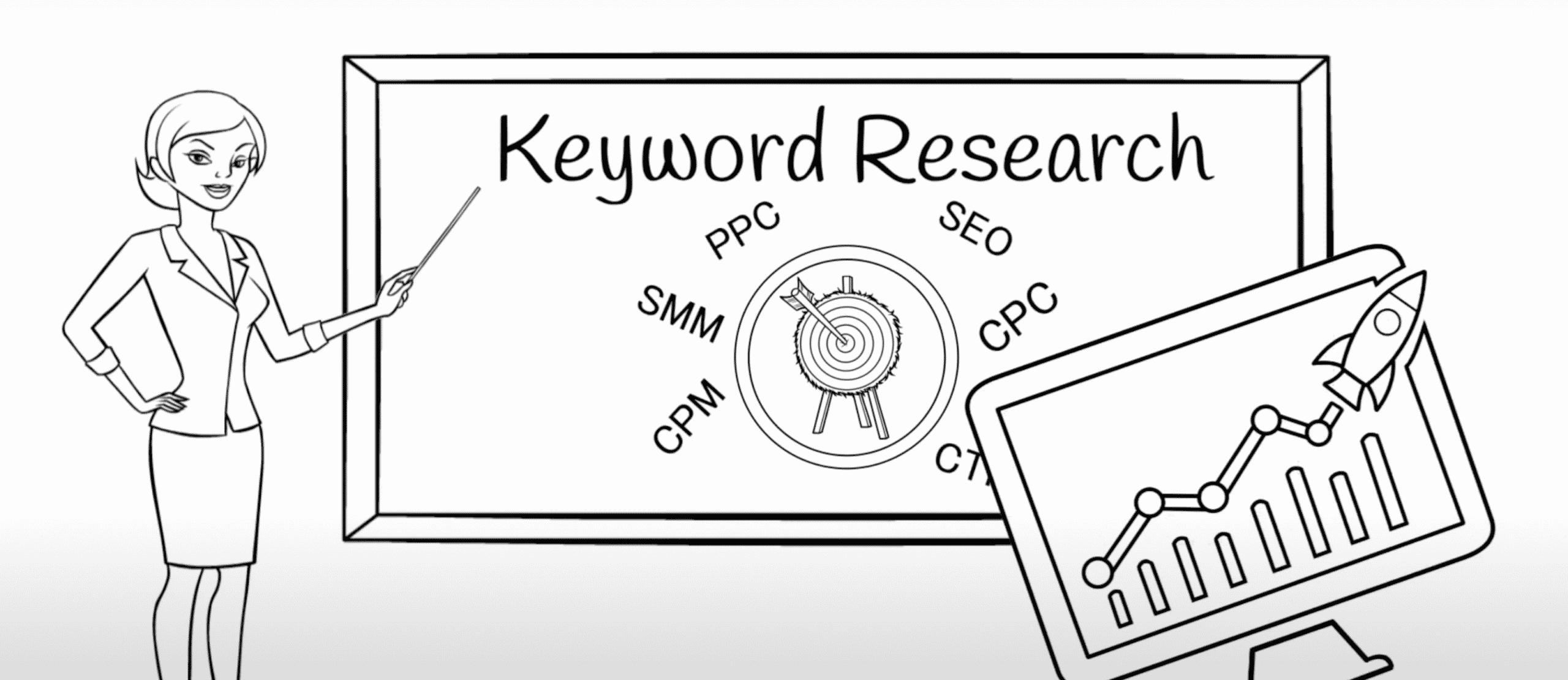In the fast-paced world of digital advertising and PPC management, change is the only constant. As we step into 2024, businesses relying on PPC (pay-per-click) advertising in Denver and beyond are facing a significant shift: the decline of third-party cookies. With major players such as Google (Chrome), Facebook and Apple already phasing out these tracking mechanisms, it’s high time to understand the impact of these privacy changes on your business and explore strategies to thrive in this cookieless future especially with your Google Ads campaign efforts.
Understanding Google’s New Privacy Changes and How They’ll Impact Your Denver PPC Efforts
Google’s decision to phase out third-party cookies is part of a broader industry-wide movement toward enhancing user privacy. While this is great news for consumers, it poses a challenge for businesses that rely on detailed user data for their Denver PPC. In this brave new world, personalized ads based on browsing history will become a thing of the past. Instead, advertisers will need to adapt to a privacy-centric landscape.
Google, as the giant of the internet, has made some significant changes in how online advertising works, and it’s important for business owners to grasp what these changes mean for their operations. In particular, Google’s decision to phase out third-party cookies is something you need to pay attention to.
What Are Third-Party Cookies?
Think of third-party cookies as little trackers that follow you around the internet. They collect information about your online activities, like the websites you visit and the products you click on. Businesses have been using this data to target ads at you based on your interests and behaviors.
Why is Google Phasing Cookies Out?
Google, along with other tech giants, is embracing a shift toward enhancing user privacy. They want to give people more control over their online data and create a safer internet environment. While this is great news for consumers, it does present a challenge for businesses, especially those that rely on this detailed user data for their Google Ads campaigns.
What Does it Mean for Your Denver PPC Campaigns?
In the past, businesses could use these cookies to create super-targeted ads. For example, if someone recently searched for hiking boots, they might start seeing ads for hiking gear. It’s like magic, right? Well, that magic is fading away.
A Privacy-Centric Landscape
In this new world, personalized ads based on a person’s browsing history will become a thing of the past. Google and other platforms are moving towards a more privacy-centric landscape. So, what does this mean for your business?
1. Less Personalization
You won’t have the same level of data to create highly personalized ads. While this might seem like a setback, it’s an opportunity to focus on creating compelling, relevant ads that resonate with a broader audience.
2. Importance of First-Party Data
First-party data, which is the information you collect directly from your customers, becomes even more crucial. This data is like gold because it’s willingly shared by your customers, and it’s something you can rely on as third-party cookies fade away.
3. Reimagining Your Denver PPC Strategy
It’s time to rethink your PPC management strategy. Instead of relying on tracking cookies, consider strategies that engage your audience in a privacy-friendly way. This could include content marketing, loyalty programs, and interactive ads that don’t rely on tracking individuals.
The Bottom Line for Business Owners
While Google’s privacy changes may present some initial challenges for businesses, they also provide an opportunity to build stronger, trust-based relationships with your audience. By focusing on first-party data, reimagining your Denver PPC strategy, and adapting to this privacy-centric landscape, you can continue to thrive and succeed in the ever-evolving world of online advertising. Embrace the change, and you’ll be well-prepared for the future of digital marketing.
Evaluating Your Marketing Strategies and Adjusting for a Cookieless Future
To remain competitive in Denver’s PPC landscape, it’s essential to reevaluate your marketing strategies. Instead of relying on third-party data, focus on building your first-party data sources. This means cultivating relationships with your audience and finding innovative ways to collect their information.
The Value of Location-Based Advertising and Why You Should Prioritize It
One of the most potent tools in your arsenal is location-based advertising. In a cookieless world, targeting users based on their geographical location becomes even more critical. Tailoring your ads to specific neighborhoods, towns, or regions in Denver can significantly enhance your campaign’s effectiveness.
Maximizing First-Party Data Collection and CRM Integration
First-party data is the future of digital marketing. Invest in strategies that encourage users to willingly share their information with you. This can include sign-up forms, loyalty programs, or incentives. Furthermore, integrating your CRM (Customer Relationship Management) system with your PPC campaigns allows you to create highly targeted ads based on user behavior and preferences.
In the ever-changing world of online advertising, getting to know your customers on a personal level has never been more crucial. You might be wondering, “What’s first-party data, and why should I care?” Well, here’s the scoop.
What is First-Party Data?
First-party data is like a goldmine for your business. It’s the information you collect directly from your customers when they interact with your website, mobile app, or even your physical store. This data includes things like email addresses, purchase history, and user behavior.
Why Does It Matter?
In a world where third-party cookies are fading away, first-party data becomes your secret weapon. It’s like having a direct line to your customers without relying on tricky tracking methods. Here’s why it’s so valuable:
1. Tailored Personalization
Imagine knowing exactly what your customers love and dislike. With first-party data, you can personalize your marketing messages and product recommendations, making your customers feel like you understand their needs and preferences.
2. Building Trust
Customers are getting more privacy-conscious these days. When you ask for their data and use it transparently to enhance their experience, you build trust. They’re more likely to engage with your brand when they know you’re respecting their privacy.
How to Collect First-Party Data
Now, let’s get practical. How can you collect this treasure trove of information? Here are some ideas:
-Sign-up Forms: Encourage visitors to subscribe to your newsletter or create an account. This way, you gather their email addresses and preferences.
-Loyalty Programs: Reward your loyal customers with exclusive deals or points for every purchase. This not only boosts customer retention but also gives you more data to work with.
-Feedback Surveys: Ask your customers for their opinions and feedback. This not only helps you improve but also provides valuable data.
-Interactive Content: Create quizzes, polls, or contests on your website or social media to engage users and gather data in a fun way.
CRM Integration: Your Data’s Best Friend
Now, let’s talk about CRM (Customer Relationship Management) systems. Think of them as your trusty assistant in managing all this valuable data. When you integrate your CRM with your advertising efforts, magic happens:
1. Targeted Campaigns
A CRM system helps you organize and analyze your first-party data. You can segment your customers based on their behavior, preferences, and purchase history. This means you can send laser-targeted ads to the right people at the right time.
2. Personalized Communication
With CRM integration, you can send personalized emails and messages to your customers. Imagine addressing them by their first name and recommending products they’ve shown interest in – that’s the kind of personal touch that drives conversions.
3. Tracking Customer Interactions
CRM systems keep a record of every interaction your customers have with your brand. This helps you understand their journey, see what works, and adapt your advertising accordingly.
In a nutshell, first-party data and CRM integration are your secret weapons for success in the post-cookie era. They allow you to build strong relationships with your customers, personalize your marketing, and adapt to their changing needs. So, make it a priority to collect and leverage your own data – it’s the key to thriving in the ever-evolving world of online advertising.
Performance Bidding Strategies for Search and Shopping Campaigns in a Privacy-Centric Landscape
With third-party cookies on their way out, performance bidding strategies must adapt. Optimize your bids based on the data you collect directly from your audience. Analyze their behavior, preferences, and purchase history to make informed decisions that maximize your ROI.
Custom Audiences and Lookalike Modeling Without Third-Party Data
Custom audiences and lookalike modeling have been essential tools in PPC management, but without third-party data, they require a new approach. Create custom audience segments based on the first-party data you’ve collected. These segments can be just as effective in targeting the right audience for your ads.
Measuring Success Through Conversions, Not Just Clicks and Impressions
In a post-cookie era, the definition of success in PPC advertising must evolve. Instead of obsessing over clicks and impressions, focus on conversions and ROI. Track user interactions throughout the customer journey, from the first touchpoint to the final conversion.
In the ever-evolving world of digital advertising, clicks and impressions, once the primary metrics of success, are no longer the whole story in a post-cookie era. Instead, the focus should shift towards conversions and ROI.
What Are Conversions and ROI?
Before we dive deeper, let’s clarify what conversions and ROI mean in the context of PPC advertising:
-Conversions: A conversion is when a user takes a desired action on your website or landing page, such as making a purchase, signing up for a newsletter, or requesting more information. Conversions represent a tangible result that aligns with your business goals.
-ROI (return on investment): ROI measures the profitability of your PPC campaigns. It calculates the ratio of the revenue generated from your PPC ads compared to the cost of running those ads. A positive ROI means your campaigns are profitable, while a negative ROI indicates losses.
Why Shift Focus to Conversions and ROI?
In a post-cookie era, measuring success by clicks and impressions is no longer sufficient. Here’s why you should shift your focus:
1. Quality Over Quantity
Clicks and impressions tell you how many people saw or interacted with your ads, but they don’t differentiate between casual clicks and meaningful engagements. Conversions, on the other hand, indicate that a user took a specific action that aligns with your business objectives.
2. Clear Business Impact
Conversions directly tie to your business outcomes. Whether it’s a sale, lead, or other desired action, each conversion contributes to your bottom line. ROI, in turn, quantifies how efficiently your ad spend is driving these valuable outcomes.
3. Understanding Customer Behavior
Conversions provide insights into the customer journey. By tracking interactions from the initial touchpoint to the final conversion, you gain a deeper understanding of how users engage with your brand. This knowledge allows you to optimize your campaigns for better results.

Enhanced Conversions in Google Ads
Now, let’s take a closer look at a powerful tool available within Google Ads: Enhanced Conversions. Enhanced Conversions is a feature designed to help you track and measure conversions more accurately. Here’s what it offers:
1. Improved Data Accuracy
Enhanced Conversions uses advanced tracking techniques to provide more precise data on user interactions. This means you can trust that the conversions reported in Google Ads align closely with actual customer behavior.
2. Additional Conversion Insights
Beyond basic conversion tracking, Enhanced Conversions can capture additional information about how users engage with your website. This includes data on button clicks, page scrolls, and other valuable interactions that may not be captured with standard tracking methods.
3. Enhanced Attribution Modeling
Attribution modeling helps you understand the various touchpoints in a customer’s journey that led to a conversion. Enhanced Conversions provides more sophisticated attribution models, helping you allocate credit to the right ad clicks and optimize your budget accordingly.
In the post-cookie era, success in PPC advertising goes beyond clicks and impressions. Shifting your focus to conversions and ROI allows you to measure the real impact of your campaigns on your business. Utilizing tools like Enhanced Conversions in Google Ads provides you with more accurate data and deeper insights into user behavior, ultimately helping you make data-driven decisions to maximize your advertising effectiveness. So, remember, it’s not just about getting clicks; it’s about turning those clicks into meaningful actions that drive your business forward.
When and How to Bring in Experienced Denver PPC Managers
Navigating the complexities of PPC advertising in a post-cookie era may require expert assistance. Experienced Denver PPC managers can help you adapt to the changing landscape, implement effective strategies, and stay ahead of the competition.
Testing New Creative and Landing Pages Designed for Privacy-First Users
Privacy-conscious users may be less willing to engage with traditional advertising methods. Experiment with new creative approaches and landing pages that respect user privacy while still conveying your message effectively.
Continuous Optimization is Key – Be Ready to Pivot and Improve Ongoing Performance
Finally, remember that adaptation is an ongoing process. The Denver PPC landscape is continually evolving, and your strategies should too. Regularly review and optimize your campaigns based on the data you collect, market trends, and user behavior.
The post-cookie era doesn’t spell doom for PPC advertising in Denver. Instead, it’s an opportunity for businesses to refine their strategies, prioritize first-party data, and embrace new, privacy-focused approaches. By understanding Google’s privacy changes and proactively adjusting your PPC management services, you can continue to thrive in the evolving digital advertising landscape of 2024 and beyond.
Related Content: Unlocking Denver’s Digital Frontier: 2024 Comprehensive Local Guide to Denver SEO









